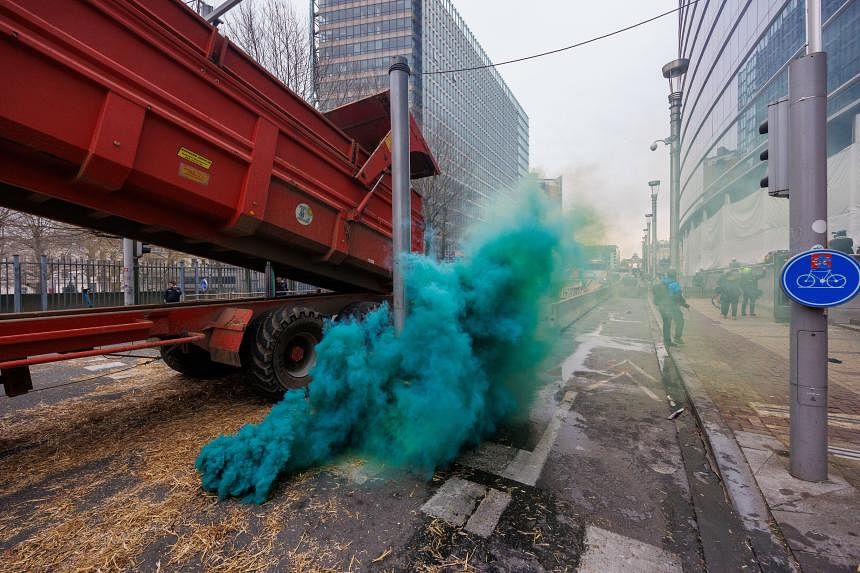BRUSSELS – France and Poland pressed on March 26 for greater curbs on imports of food products from Ukraine to prevent what they called the destabilisation of European Union agricultural markets and further upset for angry farmers.
EU members are debating how to grant Ukraine a further year-long extension of tariff-free access to its markets, while also placating farmers who have protested for months against EU environmental rules and cheap imports.
French Agriculture Minister Marc Fesneau told reporters before a meeting with EU counterparts in Brussels that destabilised markets could erode public support for Kyiv, which would neither be in the interests of the EU nor of Ukrainians.
Mr Czeslaw Siekierski, his Polish counterpart, said farmers in countries neighbouring Ukraine were paying too high a price.
Nearby, farmers jammed the EU district with about 250 tractors, including a main road into Brussels and the square in front of the European Parliament.
A number dropped sugar beets, piles of earth and wooden pallets beside a police barricade.
The European Commission has proposed suspending duties on Ukrainian farm produce for a further year to June 2025, with a new “emergency brake” for poultry, eggs and sugar leading to tariffs if imports exceed the average levels of 2022 and 2023.
Oats, maize, groats and honey have since been added to the list. Mr Fesneau and Hungarian minister Istvan Nagy said wheat also had to be included.
France and Poland are meanwhile pushing for the brake threshold to be the average of 2021 to 2023.
This would include the year before Russia’s invasion, when Ukrainian exports to the EU were curbed by tariffs and quotas.
Kyiv has said most of its grain exports are now going via the traditional Black Sea route, rather than into eastern Europe.
Low global wheat prices have dropped because of abundant supplies in top exporter Russia.
“The defence of Ukraine is also about not participating in (Russian President Vladimir) Putin’s propaganda, namely that the problem of falling grain prices is due to Ukrainian supplies,” Germany’s Agriculture Minister Cem Ozdemir told reporters.
Mr David Clarinval, the agriculture minister of Belgium – which holds the six-month rotating EU presidency – said he expected a solution to be found in the coming days, without detailing what such a solution would entail.
EU ambassadors are scheduled to tackle the topic on March 27. REUTERS

